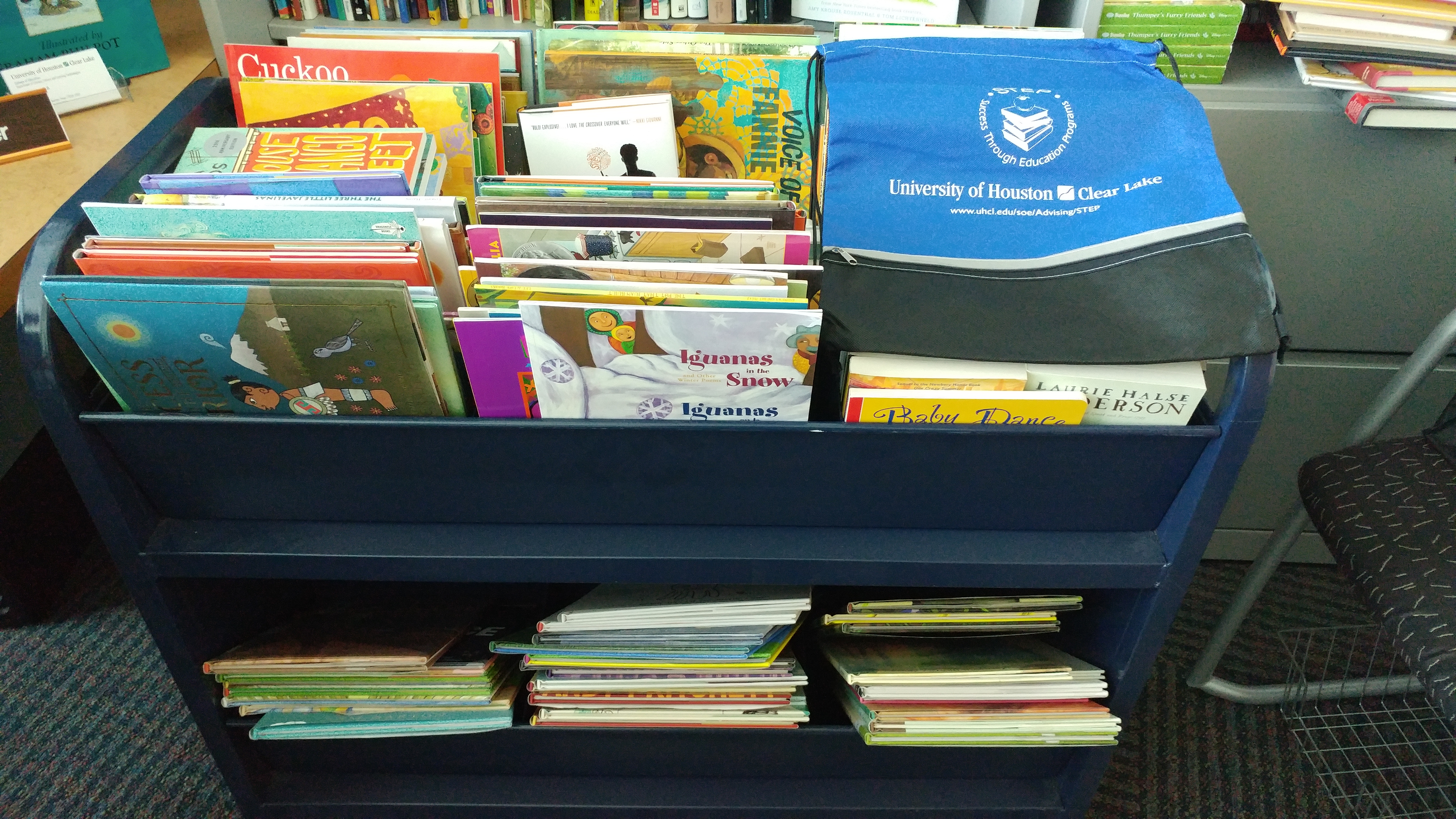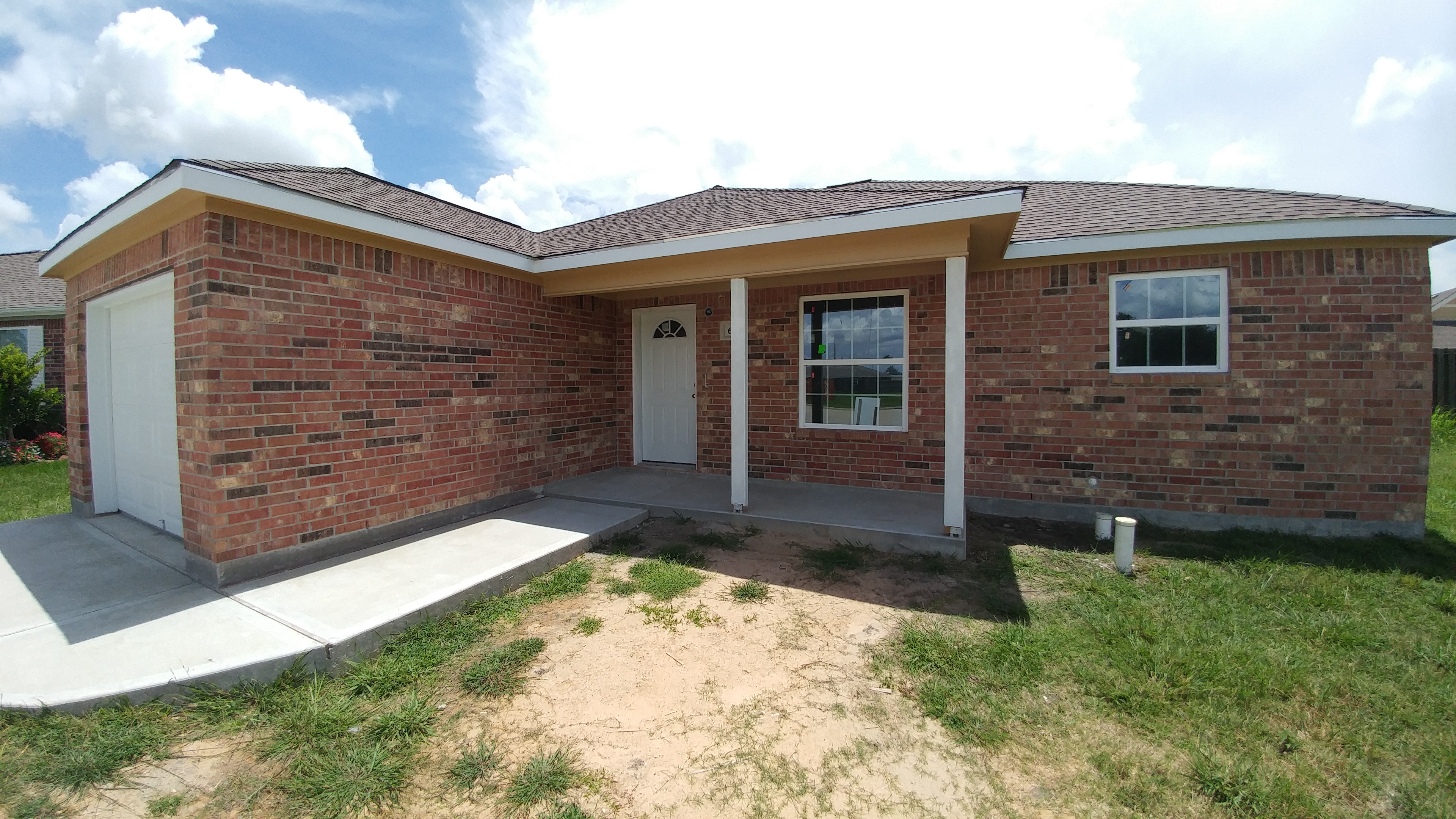
Habitat for Reading program empowers children with in-home libraries
Three families moving into newly-built Habitat for Humanity homes in Pasadena and La Porte will receive personalized children’s libraries through UHCL’s Habitat for Reading program.
Sheila Baker, assistant professor of school library and information science, established the program Fall 2015. The Habitat for Reading program donated more than 700 books and installed libraries in seven Habitat for Humanity homes.

Baker created the program to give economically-disadvantaged children better access to books and increase their reading skills.
A 2014 report released by the Barbara Bush Houston Literacy Foundation found that economically-disadvantaged third graders scored 19 percent lower on the reading portion of the STAAR test than their economically-advantaged peers.
In a 2010 report, The Annie E. Casey Foundation found a strong correlation between reading proficiency in the third grade and success later in life. The report said, in 2008, 47 percent of Texas children living in families with income below 200 percent of the federal poverty line do not have reliable access to books.
“It’s really critical that we get books in the hands of children at an early age in order to foster that love of reading and get in the habit of reading, so when they’re in third grade they already have great reading skills and enjoy reading,” Baker said.
Baker is still in the process of collecting data about the impact of the Habitat for Reading program, but preliminary research shows positive results.
“The very first family that we did said that their youngest daughter has grown to be the top student in her class,” Baker said.

Nancy Wright, senior lecturer of reading and language arts, has students in her Survey of Children’s Literature (LLLS 4345) class build companion workbooks with reading strategies and activities that accompany specific books in the Habitat for Reading program.
Wright works closely with Baker and the families to put together libraries personalized to each child.
“I think it will have long-lasting benefits for those kids in their lives that we don’t even yet know and never will know,” said Wright. “It’s like planting seeds that we may never harvest, but they will.”
The Barbara Bush Houston Literacy Foundation 2014 report also said 43 percent of adults with the lowest literacy levels live in poverty. The report also stated that one in five adults in Houston are functionally illiterate, meaning they struggle to read everyday items such as warning labels or instructions.
Many people who are considered functionally illiterate have trouble finding and keeping jobs because they are unable to perform tasks that require reading.
“Just as Habitat for Humanity is about upward empowerment, so is Habitat for Reading,” said Richard Zalesak, UHCL’s associate director of development – major gifts and vice president of the board of directors for Bay Area Habitat for Humanity.
Habitat for Reading offers parents and children support to foster better reading habits and skills.
“Children develop so quickly in their early years,” Zalesak said. “Reading with a parent and then reading on their own gives the basic foundation for lifelong learning, pleasure and economic advancement.”
The Habitat for Reading program relies on donations and the work of volunteers to create these personalized libraries. Currently, the majority of the donations are from The Bill and Helen Crowder Foundation. Baker used all of the donated money to buy books.
Baker’s immediate goal for the program is to turn it into a nonprofit organization with the help of UHCL’s accounting students in order to establish the program further.
Baker wants to expand the program beyond the Pasadena and Bay Area Habitat for Humanity organizations. She hopes to one day make it a statewide program, or a national or international program alongside Habitat for Humanity. To make that a reality, Baker said she needs more volunteers and bigger donations.
Anyone interested in volunteering or donating to the Habitat for Reading program can contact Sheila Baker at bakers@uhcl.edu or 281-283-3515.
For more information about Habitat for Humanity’s local projects and how to get involved, visit:
